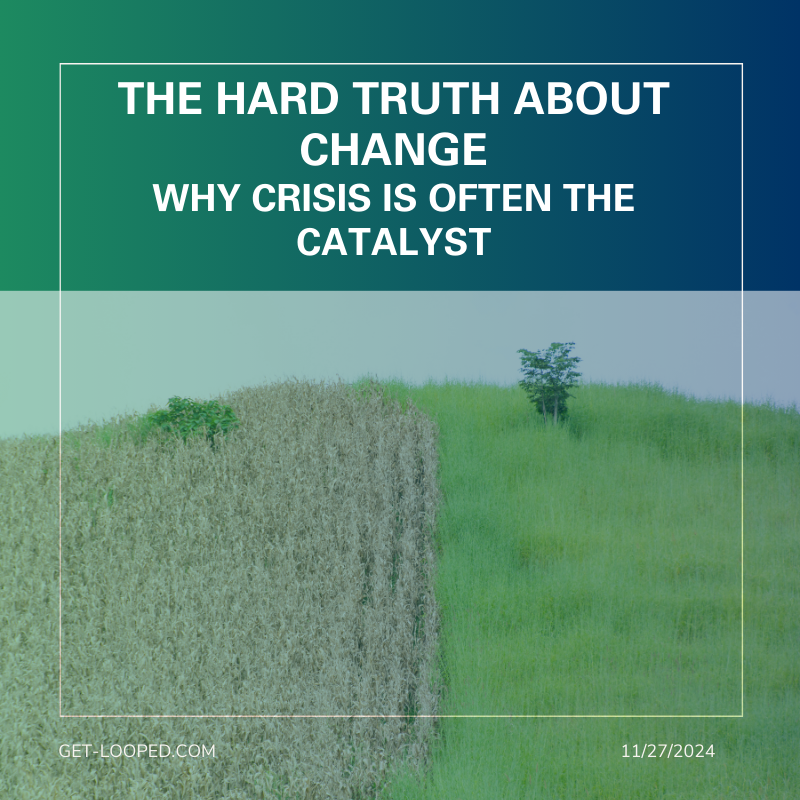The Hard Truth About Change: Why Crisis Is Often the Catalyst
As someone who works closely with small private business owners, I often find myself helping people navigate crises of their own making. These crises aren’t limited to boardrooms or bottom lines—they’re deeply personal. Drugs, alcohol, gambling, unhealthy relationships with food or sex—at their core, these issues stem from breaking personal integrity. And inevitably, they carry significant consequences.
I want to believe that these crises can be prevented with enough warning. If you could show someone the trajectory of their current behavior—its inevitable toll on their health, relationships, or career—they’d change course. But after years of experience, I’ve come to an uncomfortable realization: meaningful change rarely happens without a significant, life-altering event.
What Forces Change?
The truth is people often don’t change until they’re faced with a moment of reckoning. It might be their spouse threatening to leave, their children withdrawing from them, a health scare like a stroke or diabetes, or even the looming specter of jail time. These crisis moments shake people to their core and make them willing to confront the hard work of change.
Change is hard—there’s no sugarcoating it. It’s not just about stopping destructive behaviors but fundamentally rethinking how you approach life. Yet, the sad reality is that for many, the wake-up call comes only after the damage is done.
There are Warning Signs
If you find yourself lying awake at night, replaying the same mistakes, such as:
“I stopped at the bar again, even though I swore I wouldn’t.”
- “I drank on the train home, promising myself this was the last time.”
- “I’ve been skimming money from the business, knowing I’ll eventually get caught.”
Ask Yourself: “Is this the moment to take action?”
These behaviors carry consequences, and deep down, you know it. In recovery circles, we call this living in the “yets.” You haven’t lost your job yet. You haven’t had a heart attack yet. You haven’t lost your family yet. But the inevitability is there, looming just over the horizon.
A Sobering Reality: Time Is Not on Your Side
I see the same heartbreaking pattern in my volunteer work at a local detox center. People return time and again, pledging to change, but their situation is worse each time. The sad reality is that the longer you wait, the harder the climb becomes.
But here’s the good news: you can take control before the worst happens.
The Time for Change Is Now
If you’re reading this and feeling a pang of recognition, consider this your invitation to take action. Reach out to someone—me, a trusted friend, or a professional—who can help you take the first steps toward meaningful change. Don’t wait for the crisis to force your hand.
The destiny of your daily behavior is inescapable, but it’s also yours to rewrite. Change is hard, yes. But it’s possible—and you don’t have to do it alone.



